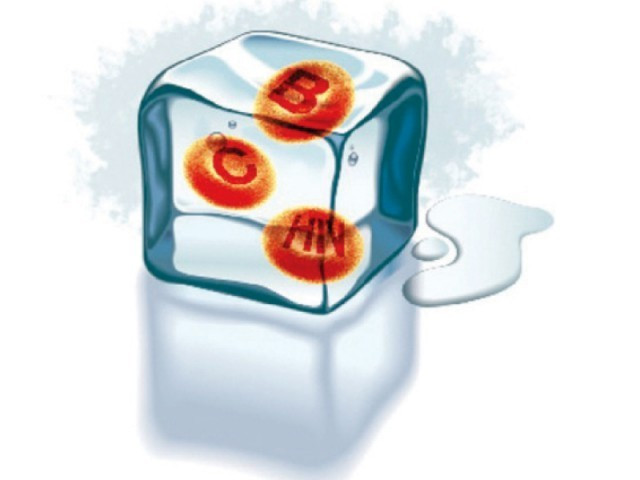Hepatitis B: The silent killer
The disease has common symptoms but can prove deadly

The disease has common symptoms but can prove deadly. STOCK IMAGE
Briefing the public about the various forms of hepatitis and the prevention and treatment methods, doctors said that vaccinations for prevention of hepatitis A, B and E were available, but there was none for hepatitis C. They believe that such a vaccine is less likely to be developed in the coming future.
AKU gastroenterology section head Dr Shahab Abid said that hepatitis B virus (HBV) has very common symptoms such as nausea and fever. However, he added, it can be a silent killer. According to Abid, as many as five million people in Pakistan are affected by HBV, while its presence in Karachi alone is 3.1 per cent.
"Since the virus is embedded in the cells, it is not possible to remove it without removing the cell," said Abid. "Treatment is done to reduce its implications in other body parts and to prevent liver cancer."
Speaking about the common myth of the spread of hepatitis A virus (HAV) and hepatitis E virus (HEV) through patient interaction, AKU medicine department clinical services director Dr Syed Hasnain Ali Shah said that the virus usually spreads through contaminated water.
"If water contaminated with the faecal material of an infected person is consumed, spread of HAV and HEV is most likely," he said. According to Shah, HAV is common among children and a majority are affected by it by the time they reach the age of 10. "By this time, antibodies have already been developed by the body to fight off any future occurrence," he said.
Speaking about hepatitis virus C (HVC), doctors revealed that 60 per cent of the time, the virus spreads through contact with unsafe injections. AKU medicine department chairperson Dr Saeed Hamid shared a study in which 203 adult patients were asked about their treatment preference, out of which 81 per cent responded that their method of choice involved injections.
Gastroenterology assistant professor Dr Faisal Wasim explained that liver cirrhosis and liver cancer were final consequences for patients who do not go for diagnosis and treatment of chronic hepatitis. "The various stages can be quite painful, as the patients may develop complications through blood vomit, accumulation of water in stomach and coma," he said.
Published in The Express Tribune, July 30th, 2015.


















COMMENTS
Comments are moderated and generally will be posted if they are on-topic and not abusive.
For more information, please see our Comments FAQ